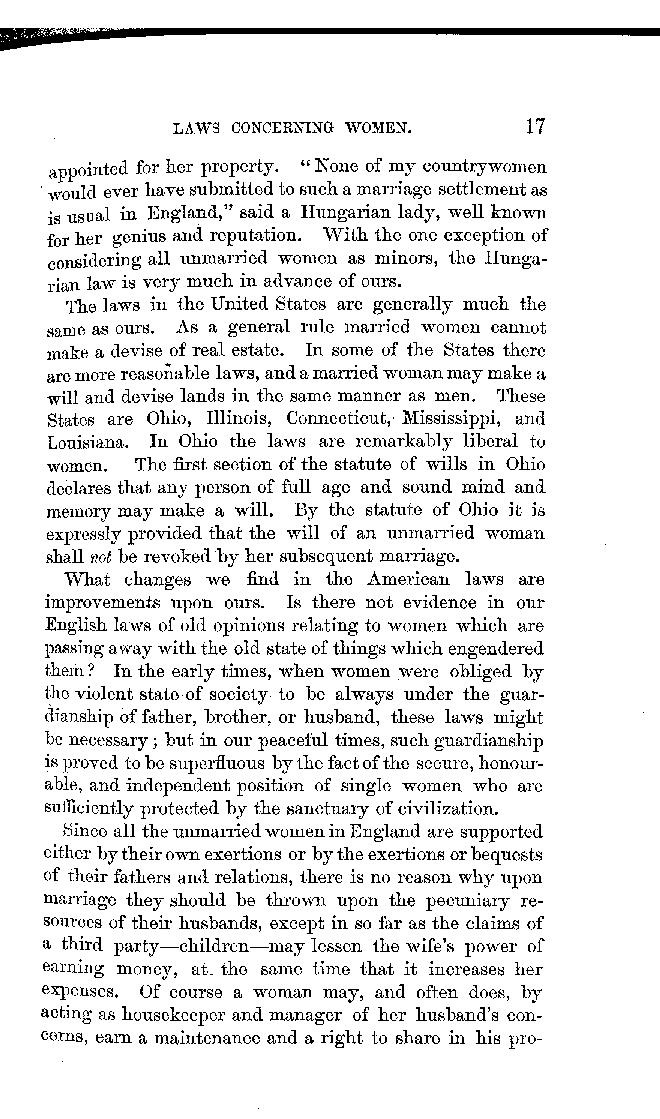appointed for her property. "None of my countrywomen would ever have submitted to such a marriage settlement as is usual in England," said a Hungarian lady, well known for her genius and reputation. With the one exception of considering all unmarried women as minors, the Hungarian law is very much in advance of ours.
The laws in the United States are generally much the same as ours. As a general rule married women cannot make a devise of real estate. In some of the States there are more reasonable laws, and a married woman may make a will and devise lands in the same manner as men. These States are Ohio, Illinois, Connecticut, Mississippi, and Louisiana. In Ohio the laws are remarkably liberal to women. The first section of the statute of wills in Ohio declares that any person of full age and sound mind and memory may make a will. By the statute of Ohio it is expressly provided that the will of an unmarried woman shall not be revoked by her subsequent marriage.
What changes we find in the American laws are improvements upon ours. Is there not evidence in our English laws of old opinions relating to women which are passing away with the old state of things which engendered them? In the early times, when women were obliged by the violent state of society to be always under the guardianship of father, brother, or husband, these laws might be necessary; but in our peaceful times, such guardianship is proved to be superfluous by the fact of the secure, honourable, and independent position of single women who are sufficiently protected by the sanctuary of civilization.
Since all the unmarried women in England are supported either by their own exertions or by the exertions or bequests of their fathers and relations, there is no reason why upon marriage they should be thrown upon the pecuniary resources of their husbands, except in so far as the claims of a third party—children—may lessen the wife's power of earning money, at the same time that it increases her expenses. Of course a woman may, and often does, by acting as housekeeper and manager of her husband's concerns, earn a maintenance and a right to share in his pro-